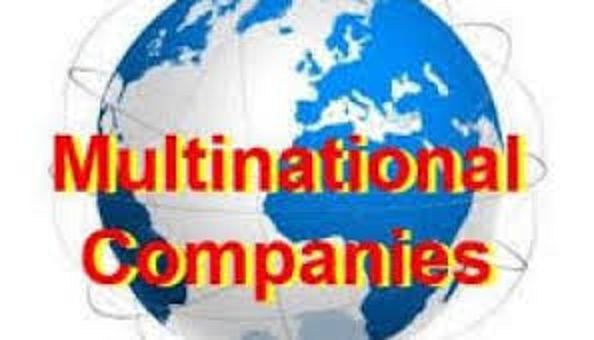Tax Planning for Multinational Corporations
Tax Planning for Multinational Corporations
Expanding into a new market like Nigeria offers multinational corporations (MNCs) significant growth opportunities. However, navigating the tax landscape in Nigeria can be complex, with different regulations, tax obligations, and incentives at play. Effective tax planning is essential to ensure that multinational corporations can optimize their tax liabilities, comply with Nigerian tax laws, and minimize risks. This guide provides key tax planning strategies to help MNCs successfully expand into Nigeria.
About Tax Planning in Nigeria
Why Tax Planning is Crucial for Multinational Corporations
Tax planning is the process of organizing your corporate structure, operations, and financial transactions in a way that minimizes tax liability while complying with the law. For MNCs entering the Nigerian market, effective tax planning is critical for:
- Compliance: Navigating Nigeria’s tax system efficiently and avoiding penalties from the Federal Inland Revenue Service (FIRS).
- Cost Efficiency: Leveraging available incentives, exemptions, and allowances to reduce the overall tax burden.
- Optimizing Investments: Structuring operations in Nigeria to maximize profitability while minimizing tax exposure.
Key Tax Considerations for Multinational Corporations Expanding into Nigeria
1. Corporate Income Tax (CIT)
- Tax Rate: The standard rate for corporate income tax in Nigeria is 30% for companies with annual profits exceeding NGN 25 million.
- Taxable Income: Multinational companies must ensure that their Nigerian entities comply with the taxation of income sourced from Nigeria. This includes profits from trade, services, and the sale of goods.
- Tax Deductions and Allowances: Nigeria offers allowances for capital expenditures, which can help reduce taxable income. Multinational corporations should explore opportunities to claim these allowances.
2. Withholding Tax (WHT)
- On Payments to Non-Residents: WHT is deducted at source on certain payments made to foreign entities, such as dividends, interest, royalties, and service fees. The rates vary between 5% to 10%, depending on the nature of the payment.
- Strategies for Minimizing WHT: MNCs can structure cross-border transactions carefully to minimize withholding tax exposure, ensuring they are eligible for reduced rates or exemptions under applicable tax treaties.
3. Value Added Tax (VAT)
- VAT Rate: The standard VAT rate in Nigeria is 7.5% on goods and services.
- VAT Exemptions: Certain goods and services may be exempt from VAT. It’s important for multinational corporations to identify these exemptions to reduce the tax burden.
- VAT Registration: If an MNC’s turnover exceeds a specified threshold, it must register for VAT with the FIRS and comply with VAT filing and remittance obligations.
4. Transfer Pricing Regulations
- Arm’s Length Principle: Nigeria follows the arm’s length principle for transfer pricing, meaning that transactions between related entities must be conducted at market prices, as if they were between independent parties.
- Compliance Requirements: Multinational corporations must ensure compliance with Nigeria’s Transfer Pricing Regulations, which require maintaining detailed documentation for intercompany transactions.
- Tax Planning Opportunities: MNCs can optimize their transfer pricing strategies to manage the allocation of profits within their corporate structure, ensuring tax efficiency in Nigeria and minimizing risks of tax audits.
5. Capital Gains Tax (CGT)
- CGT Rate: The rate of CGT in Nigeria is 10% on the sale of property, shares, and certain other assets.
- Tax Planning Considerations: Companies may consider structuring their investments to minimize the impact of CGT, particularly if they plan to sell assets or engage in property transactions as part of their operations in Nigeria.
Tax Planning Strategies for Multinational Corporations Expanding into Nigeria
1. Establish a Nigerian Holding Company or Subsidiary
- Tax Efficiency: Multinational corporations should evaluate the benefits of establishing a Nigerian subsidiary or holding company. A subsidiary structure can provide access to tax incentives, such as tax holidays under the Pioneer Status Incentive, which offers tax relief for certain industries for up to 5 years.
- Tax Deductibility: Operating through a subsidiary can provide opportunities for greater tax deductibility, such as claiming capital allowances on eligible assets like machinery and buildings.
2. Leverage Tax Treaties
- Double Taxation Agreements (DTA): Nigeria has signed Double Taxation Agreements (DTAs) with several countries. These treaties can help multinational corporations reduce double taxation on income earned in Nigeria.
- Benefits of DTAs: MNCs can apply reduced rates on withholding taxes for income such as dividends, interest, and royalties, depending on the specific treaty terms. This helps lower the overall tax burden for foreign investors.
3. Optimizing Transfer Pricing Policies
- Transfer Pricing Documentation: To avoid the risks of tax audits, multinational companies should ensure their transfer pricing policies comply with Nigeria’s transfer pricing regulations. This includes preparing detailed documentation for intercompany transactions.
- Profit Allocation: Strategically allocating profits between Nigerian and foreign subsidiaries through pricing strategies can help manage the overall global tax rate and ensure that profits are not excessively taxed in Nigeria.
4. Take Advantage of Tax Incentives and Exemptions
- Pioneer Status Incentive: Multinational corporations in certain sectors, such as manufacturing, agriculture, and infrastructure, may qualify for tax holidays or reduced tax rates under the Pioneer Status Incentive.
- Capital Allowances: MNCs engaged in capital-intensive industries can claim substantial tax deductions for investments in plant and machinery.
- Research and Development (R&D) Incentives: Companies investing in R&D may be eligible for tax credits or deductions.
5. Engage in Effective VAT Planning
- VAT Recovery: Multinational corporations can recover VAT paid on certain business inputs, such as equipment or services purchased within Nigeria, through proper VAT documentation.
- VAT Structuring: Companies should structure transactions to take advantage of VAT exemptions on specific goods or services, ensuring that their VAT liabilities are minimized.
6. Consider the Timing of Asset Disposals
- Minimize Capital Gains: MNCs should evaluate the optimal time for disposing of assets in Nigeria. Timing the sale of property or shares can minimize exposure to capital gains tax, especially if exemptions are applicable under Nigerian tax laws.
Why Multinational Corporations Need Local Tax Expertise
Navigating Nigeria’s tax system can be challenging for foreign companies. To ensure effective tax planning and compliance, multinational corporations should engage local tax experts and consultants familiar with Nigeria’s tax regulations and incentives. These professionals can:
- Provide tailored tax planning strategies for a smoother market entry.
- Ensure compliance with the FIRS and avoid penalties.
- Help identify and capitalize on available tax incentives and exemptions.
Contact Us: Expert Tax Planning for Multinational Corporations Expanding into Nigeria
Ready to Expand into Nigeria?
Our team of tax experts is here to help multinational corporations develop effective tax planning strategies for successful expansion into the Nigerian market. Whether you’re looking to establish a subsidiary, optimize your transfer pricing, or take advantage of tax incentives, we provide expert advice and solutions tailored to your business needs. Contact us today to get started.
E-mail: care@sowprofessional.com
Website: www.sowprofessional.com
Phone: 07038254989
Whassapp: 07038254989




